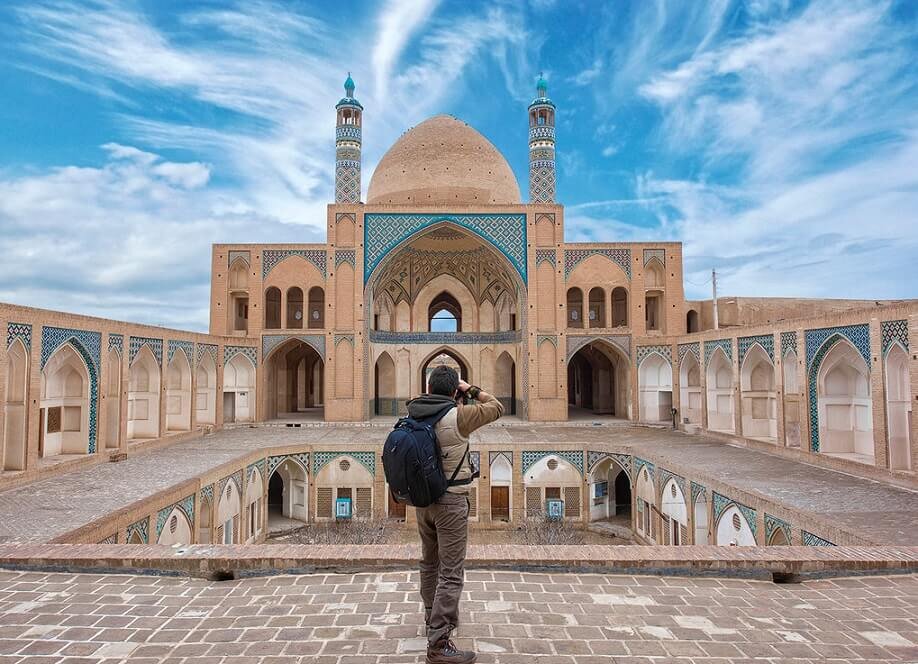How is COVID-19 affecting travel in Iran? Experts explain

TEHRAN – As you are well aware, nearly all travel businesses have been disrupted worldwide in the wake of the coronavirus (COVID-19) pandemic.
Weighing tourism losses is not easy to gauge as the data changes rapidly and the virus behavior is less-known. However, one thing is evident; if the pandemic continues for the months to come, it will lead to the loss of tens of millions of jobs and billions of dollars in revenues in the global scene.
Being shut down for the past two months, Iran’s travel industry is among the hardest hit. If the question is, ‘Will there be light at the end of the tunnel?’ Many experts say yes, considering Iran’s gigantic tourism potentials.
The rebound, according to experts, will be much more noticeable once the Iranian government agrees to grant proper bailouts and economic relief packages to the beleaguered travel industry being brought to a virtual standstill.
On one hand, the government has announced it will bail out those which are grappling with fiscal problems by offering loans with a 12-percent interest rate. On the other, the Ministry of Cultural Heritage, Tourism and Handicrafts has suggested a rescue package for tourism businesses.
Travel experts, however, hail such supportive measures, yet voice skepticism, saying they cannot resolve immense problems that the travel and hospitality industry is facing.
Several Iranian experts have explained the kinds of protection that the government could provide to COVID-19-hit people and businesses.
“Such amount of bailouts will not compensate for much of the losses as the virus pandemic has brought tourism to a standstill for two months,” said Amir-Pouya Rafiei-Shad who presides over Tehran province’s Tour and Travel Agencies Association.
Last [Iranian calendar] year was a bumpy ride for Iran’s tourism as it suffered from flooding in the spring, protests [over petrol prices] in November, and the fatal Ukraine International Airlines plane crash in January, he explained.
“The spread of the coronavirus was the latest blow to the industry, not only in Iran but in the whole world,” he added.
Rafiei-Shad added that the Iranian government needs to offer tax exemption to the tourism industry for the 2019-20 and 2020-21 fiscal years, and provide social welfare support to employees of this sector.
“Lowering the rate of unemployment has been the promise made by all governments. To attain that goal, support should be large enough to help save jobs and prevent the bankruptcy of travel agencies,” he said.
Rafiei-Shad put the number of travel agencies in Tehran province at about 20,000, adding they provide livelihood for some 80,000 people only in Tehran, if we assume each travel agency has an average of 10 people on their payrolls and each employer serves a four-member household on average.
Tour guide Mahdiyeh Jahangir believes that “Nobody assumes the responsibility for the unemployment of tour guides in the face of coronavirus pandemic.”
According to her, one of the reasons for this situation is the lack of employers for tour guides. She considers the lack of social insurance as one of the most important problems of tour guides during the virus outbreak.
“We only have a tour guide ID card and nothing more,” she lamented.
Jamshid Hamzehzadeh, the head of Iran Hotel Association, said the government bailout for tourism businesses is 120 million rials (about $2,800) for each employee that must be repaid over two years with a 12-percent interest rate.
“This sum is only enough to provide financial compensation for two or three months of an employee so that the government needs to offer loans at low interest rates like five percent instead of 12 to tourism industry and consider a five-year period for the repayment of loans with a one-year moratorium period,” Hamzehzadeh explained.
The government has allocated a 750-trillion-rial (about $18 billion) package to help low-income households and small- and medium-sized enterprises suffered by the coronavirus concerns.
Optimistic forecasts, however, expect Iran to achieve a tourism boom after coronavirus contained, believing its impact would be temporary and short-lived for a country that ranked the third fastest-growing tourism destination in 2019.
Latest available data show eight million tourists visited the Islamic Republic during the first ten months of the past Iranian calendar year (started March 21, 2019).
AFM/MG
Leave a Comment